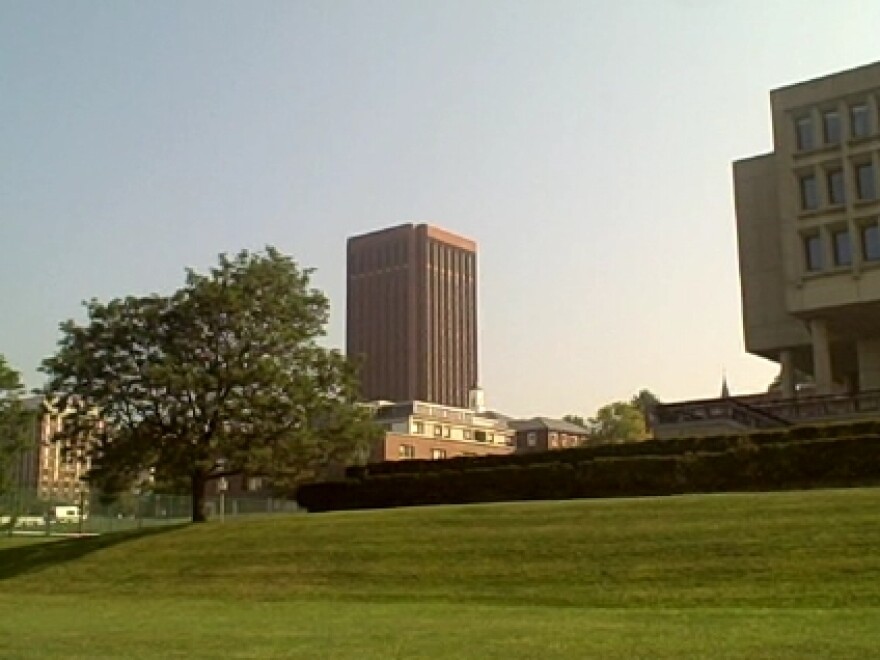A two-year freeze on tuition and fees at the University of Massachusetts won’t be extended next year. But exactly how much student costs will be going up is still to be determined.
A University of Massachusetts Board of Trustees committee, meeting in Boston Wednesday, recommended raising the tuition and mandatory curriculum fee by up to 5 percent. The size of the increase will be determined by the amount of funding UMass receives in the state budget, according to UMass spokesman Robert Connolly.
" It was done very reluctantly," he said of the decision to recommend a fee hike. " The vast preference would be to have a third consecutive tuition and fee freeze."
The recommendation will go before the full board of trustees at a meeting scheduled at UMass Amherst on June 17.
In addition to raising the mandatory curriculum fee the trustees committee on Administration and Finance also approved a controversial $250 fee to pay for technology infrastructure on the campuses and other increases in mandatory fees for health services, student activities and athletics.
The total costs for an in-state undergraduate to attend UMass Amherst next year would be $14,171—an increase of $913 – if the full 5 percent fee hike is implemented along with the other charges.
Connolly said university officials were proud of the two-year freeze on tuition and fees which he said had resulted in a $200 decline in the average net cost of attending UMass.
"UMass was one of the very few colleges and universities in the country during the past year to see the net costs for students go down," said Connolly.
UMass froze tuition and fees in each of the last two years because the system’s line item in the state budget increased by $100 million. The state budget for the next fiscal year is not final, but the funding proposals by Gov. Charlie Baker and the different appropriations approved by the House and Senate fall short of the $578 million requested by UMass officials.
State Rep. Stephen Kulik of Worthington, who is vice-chair of the House Ways and Means Committee, said UMass officials should not be so quick to raise fees.
" ( Committee members) think there are initiatives that can be undertaken on the campuses to save money without passing on costs to students and their families," he said.
Robert Caret, the outgoing president of UMass, promoted a “50-50” plan to divide evenly the cost of a university education between the student and the state.
Martin Meehan, who will become UMass president on July 1st said he will come up with a strategic plan for the university that includes state funding levels.
" I look at our operating budget for UMass and in real dollars it is about where it was when Mitt Romney was governor," said Meehan. " There have been devastating cuts to the university and we need to restore those and do even better."
Meehan said he will also push for more transparency when it comes to student costs.








